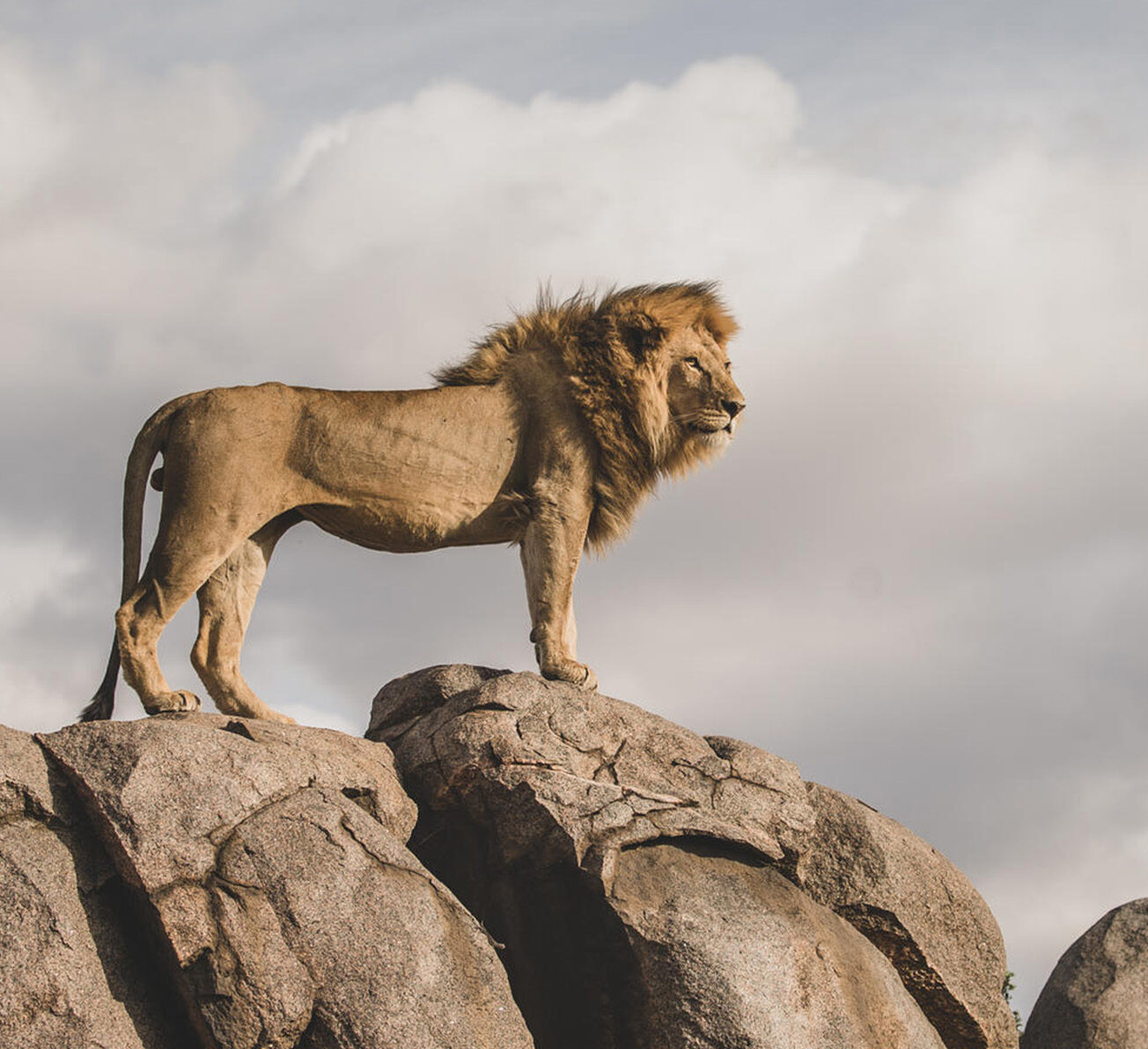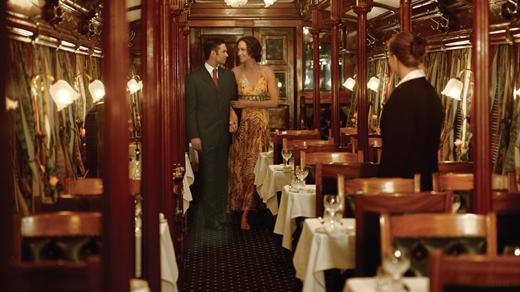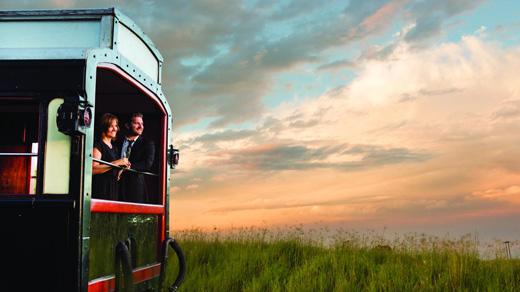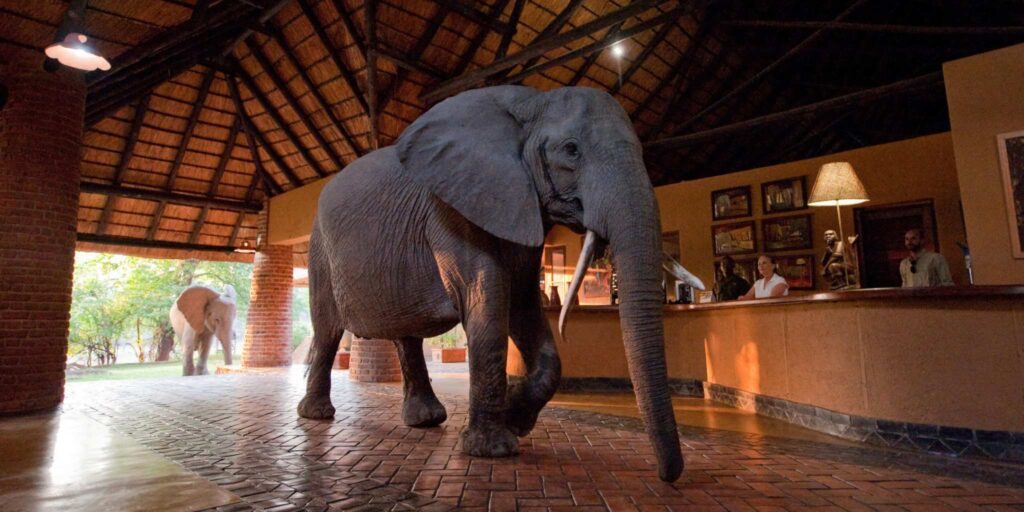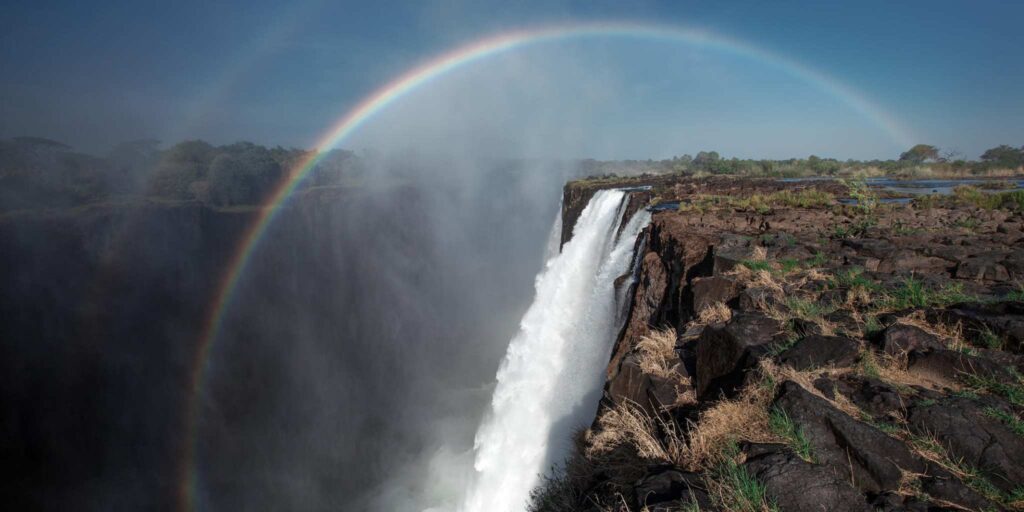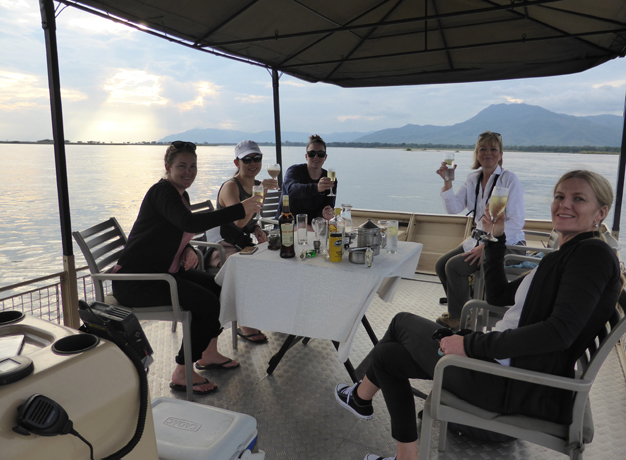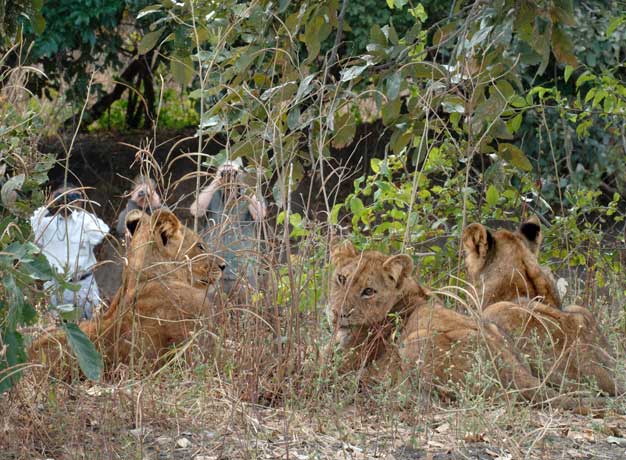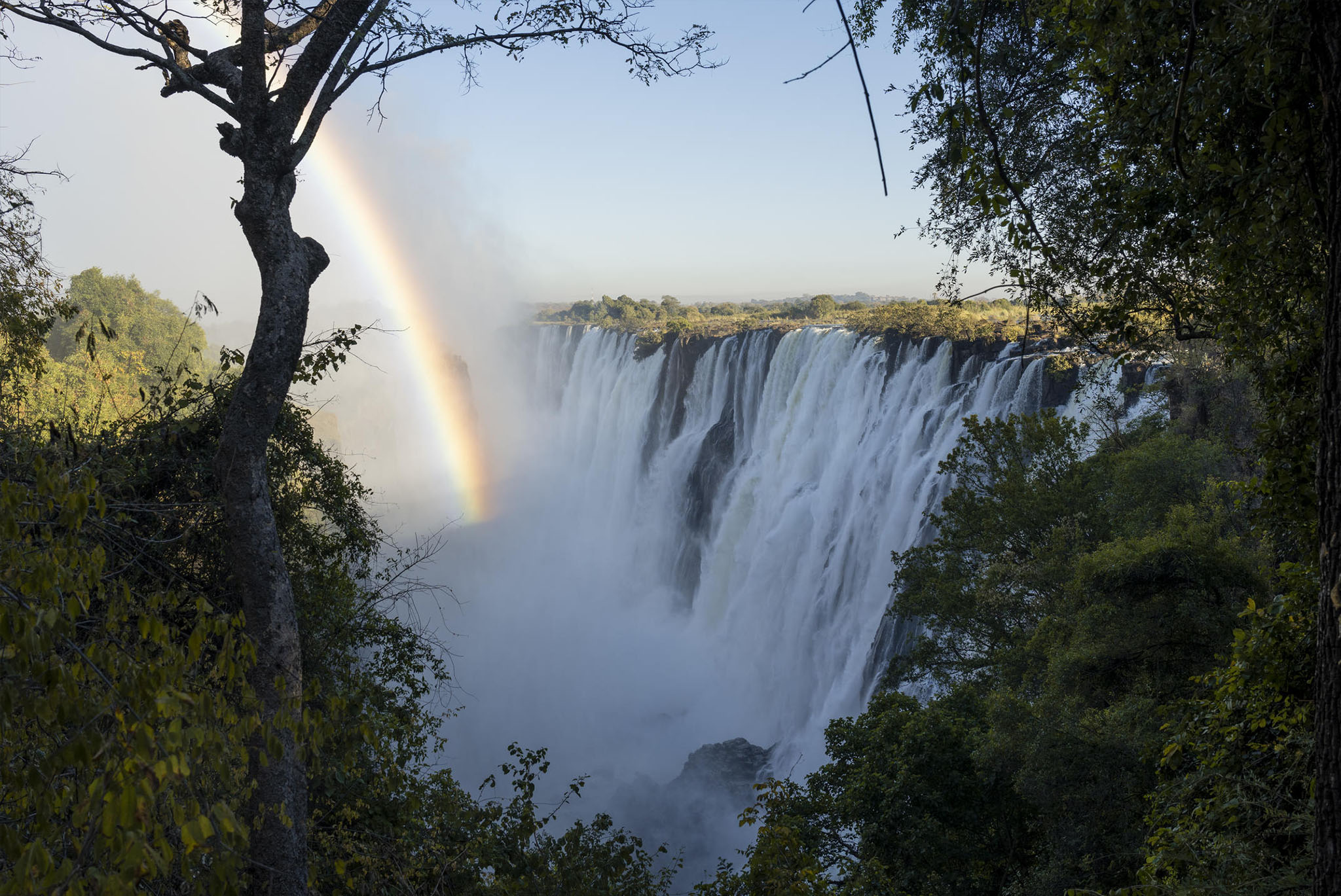
Zambia
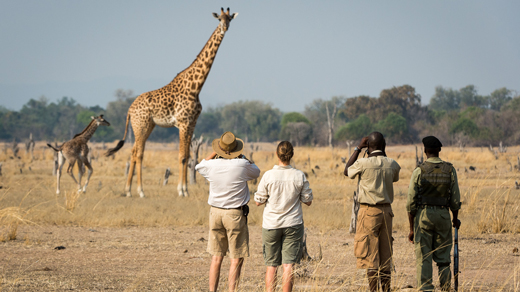
Zambia Safari Tours and Holidays
While more and more people are discovering the allure of an African holiday, Zambia has remained one of the continent’s best kept secrets. Flying under the radar, Zambia’s borders contain an abundance of wildlife, roaming through lush wetlands and populating the country’s top-notch game reserves.
Sparsely populated in many areas, a safari in Zambia offers travellers the opportunity to leave the hustle and bustle of daily life behind and truly immerse themselves in the heart of the bush. In addition to spotting animals on a Zambia safari, a holiday here is sure to please with spectacular sunsets and picture perfect scenery.
To help plan your ultimate African escape, Bench Africa has scoped out some of the best Zambia holiday experiences with help from our on the ground staff, so you can be assured of an amazing time. Here’s a glimpse of what lies in store.
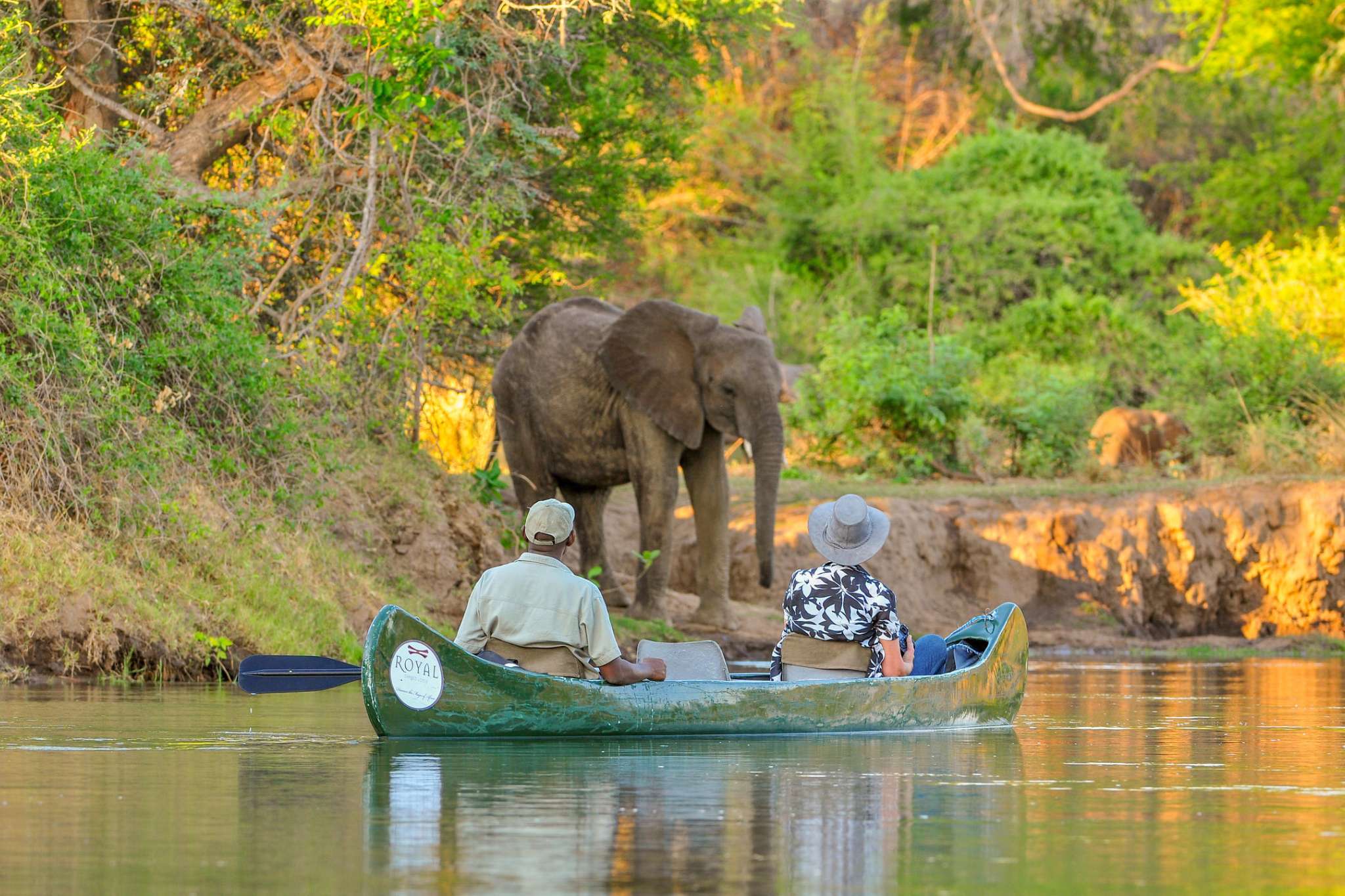
Zambia tourism
Zambia is the land of the legendary African walking safari, with big game, abundant birdlife and raw, untouched wilderness. It is blessed with 17 waterfalls including the spectacular Victoria Falls, whose thundering waters and plumes of mist dominate the landscape. The Zambezi river which feeds it is also an attraction in itself, providing a chance for thrill seekers to try their hand at white water rafting, canoeing safaris, river surfing and tiger fishing.
With just under a third of the country’s 752,614 square kilometres made up of national parks and game reserves, Zambia is a fantastic place to set out on an African safari. South Luangwa National Park has been heralded as one of the world’s greatest wildlife sanctuaries. Here, you can truly reconnect with nature, with over 400 bird species and 60 different animal species to be discovered. The spiritual home of the walking safari, one of the great African traditions, Luangwa is truly a revitalising destination, where everything from big cats to hippos and giraffes roam free.
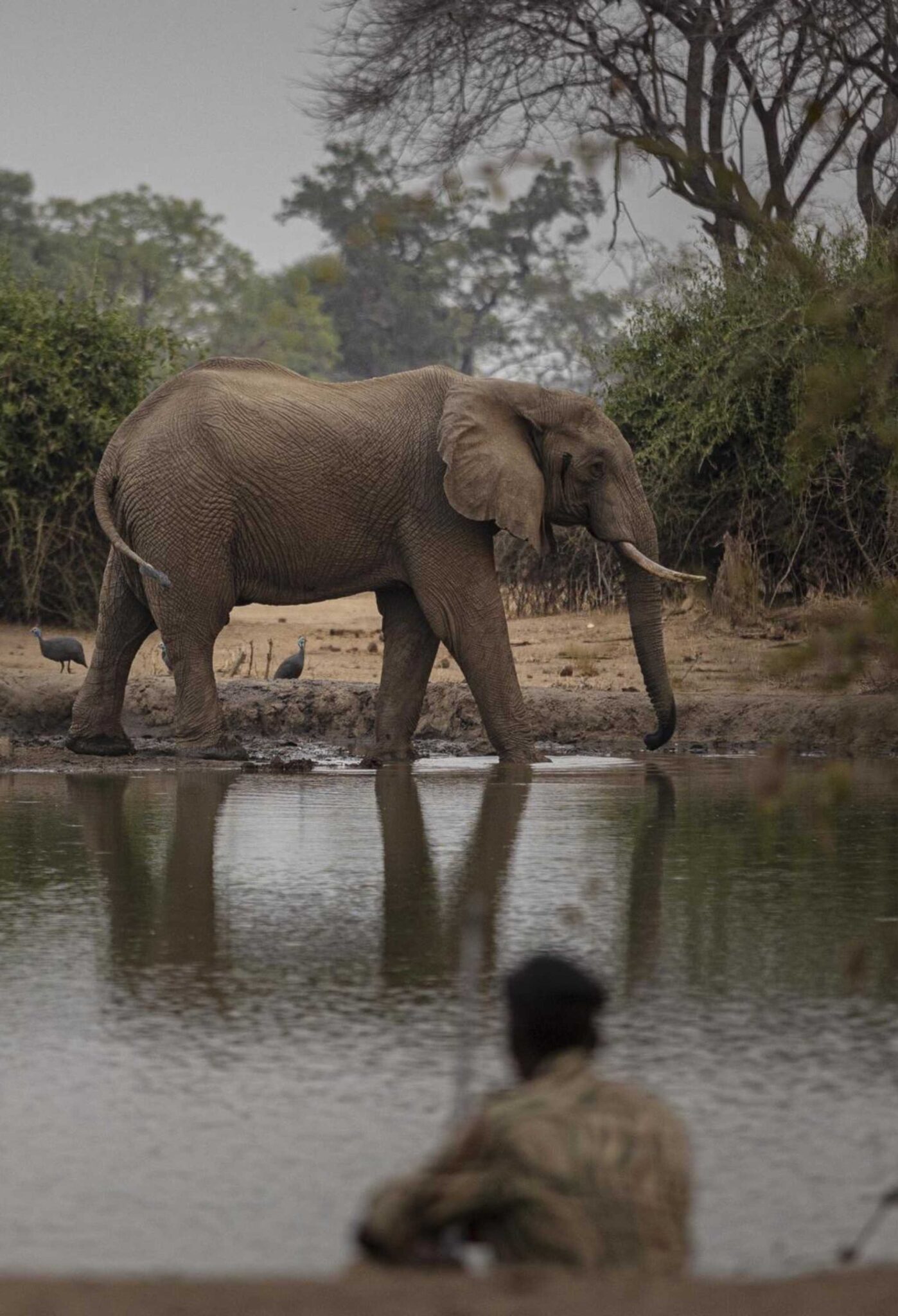
Staying in Zambia
While Zambia’s accommodation and tourism infrastructure is still in its infancy, there is a small but sophisticated safari industry featuring excellent lodges and seasonal bush camps. With some of the best African safari guides situated at Zambia’s camps, you can be assured of a genuinely intrepid experience. Zambia safaris are ideally suited for “old Africa hands” or those seeking a remote and more exclusive adventure, making it preferable to arrange an organised tour.
Like other countries in southern Africa, the Zambian climate is relatively pleasant year-round, becoming colder in the early hours and at night during the winter months of May-September.
Getting to Zambia
If you want to include a Zambia holiday in your upcoming Africa trip, Bench Africa can help make it happen. Australian passport holders currently need a visa to enter Zambia, available upon arrival, but should this change, your travel consultant will be able to advise you during the booking process. You can fly into Zambia’s Lusaka Airport, usually with a stopover in Kenya’s Nairobi Jomo Kenyatta International Airport. To get closer to Victoria Falls, there is also the option to fly into Livingstone, stopping over in Johannesburg, South Africa.
To start planning your safari in Zambia, get in touch with one of our expert travel consultants.
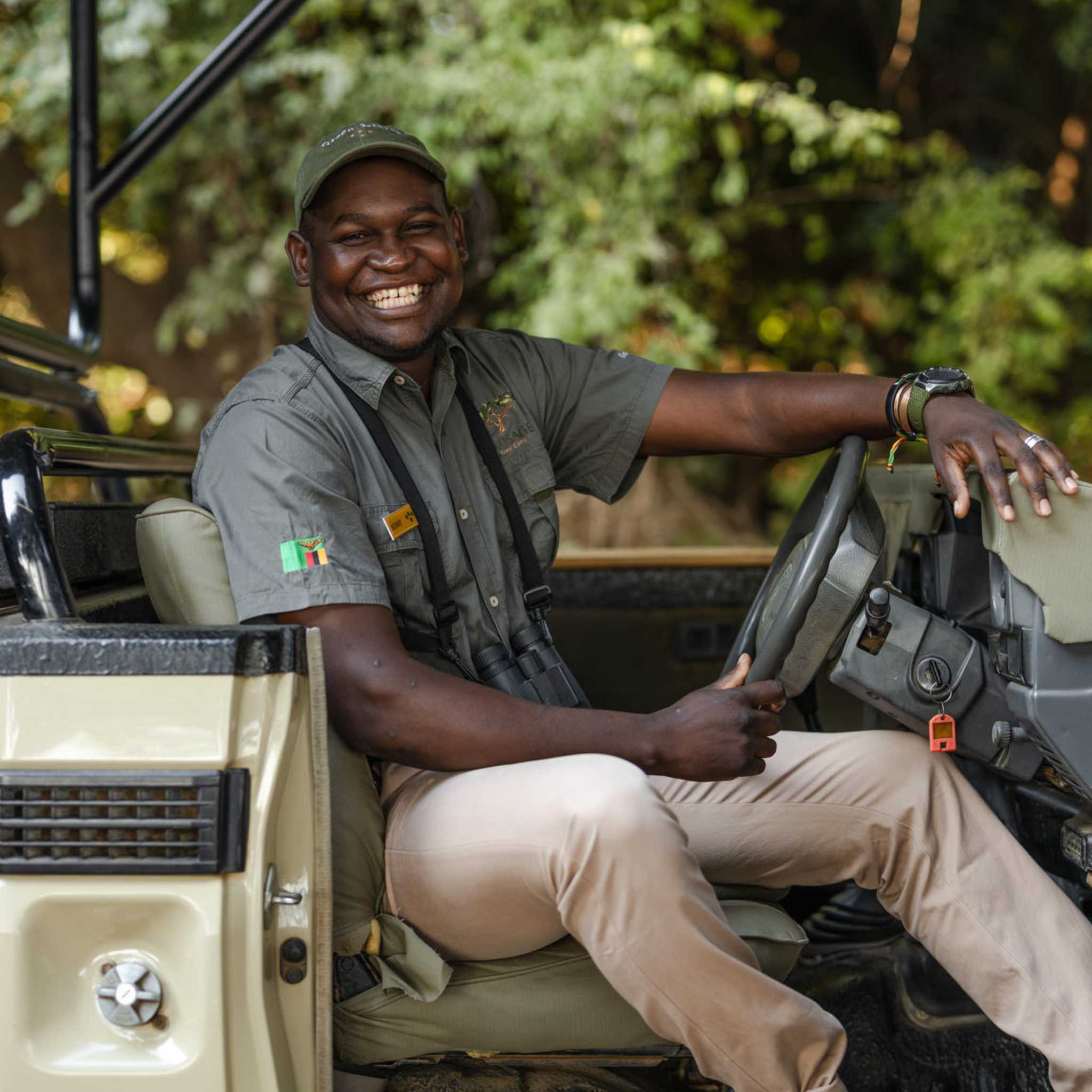
- Full Country Name Republic of Zambia
- Area 752,614 sq km
- Population 16.452 million (UN 2015)
- Capital and largest City Lusaka
- Borders Angola, Botswana, Democratic Republic of Congo, Malawi, Mozambique, Namibia, Tanzania and Zimbabwe
- Religion Around 30% of the population is Christian (Protestant and Roman Catholic), a smaller number are Muslim and Hindu, and a small minority have traditional animist beliefs
- Time Zone Standard time is two hours in advance of Greenwich Mean Time Languages English is the official language, but there are over 73 local dialects. The main languages are Bemba, Kaonde, Lozi, Lunda, Luvale, Nyanja and Tonga
- Country Dialling Code +260
Zambia highlights
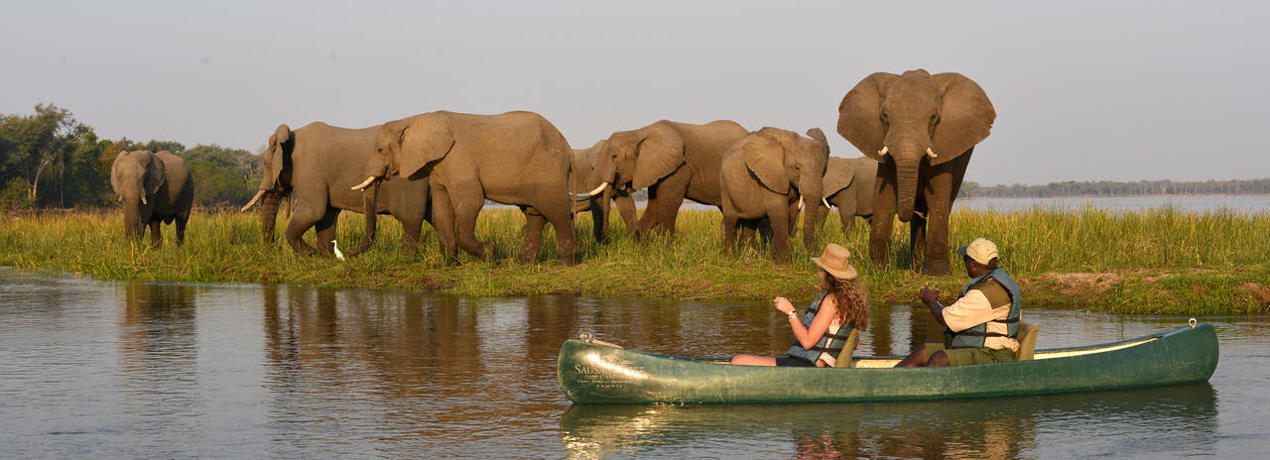
Lower Zambezi National Park
The park's distinguishing features are the rugged escarpment to the north and the 120 kms of river frontage with numerous islands, lagoons and floodplains which attract abundant wildlife.
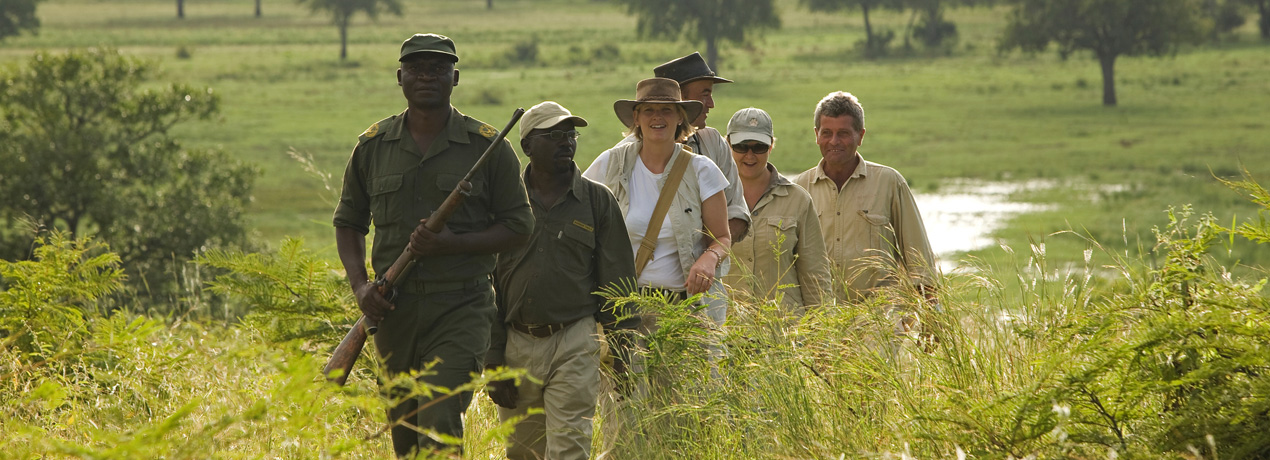
South Luangwa National Park
One of the best locations in Africa to experience a walking safari! Permanent safari lodges located near to the river are the main bases for safari activities but there are also a number of seasonal bush camps on offer in the more remote areas.
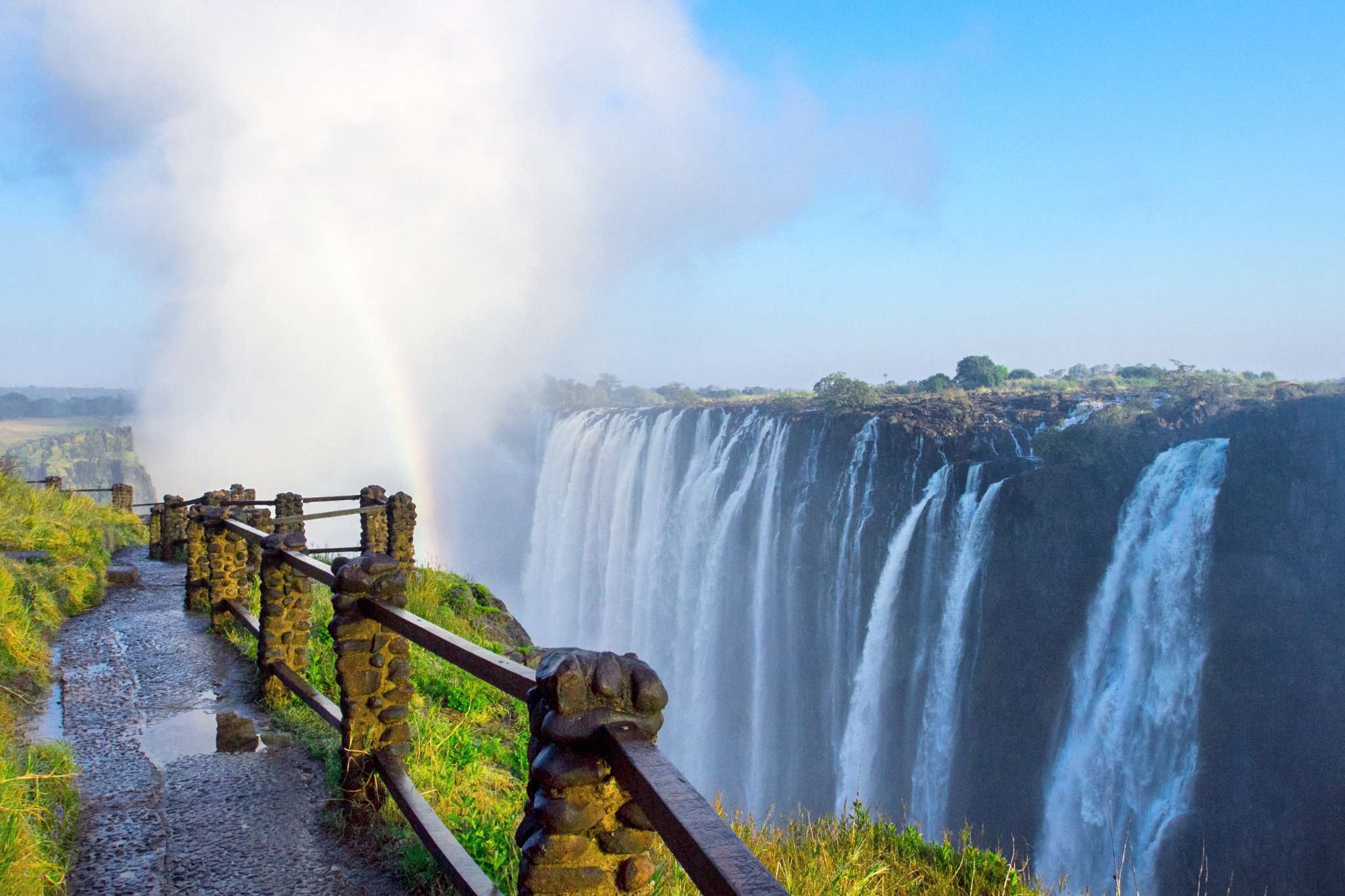
Victoria Falls
Mosi-oa-Tunya, “The Smoke That Thunders,” is one of the Seven Natural Wonders of the World and the perfect place to wind down after a safari in East or southern Africa safari.
Victoria Falls
Mosi-oa-Tunya, “The Smoke That Thunders,” is one of the Seven Natural Wonders of the World and the perfect place to wind down after a safari in East or southern Africa safari.
Zambia experiences
Blog posts on Zambia
Essential trip information
-
Accommodation
-
Accommodations in Africa, including hotels, lodges, and tented camps, vary from good tourist standards to award-winning deluxe properties. Occasionally, circumstances beyond Bench Africa’s control may necessitate a change in the assigned hotel, lodge, or camp. In such cases, we will make every effort to provide advance notice. However, please note that we may not be able to provide up-to-date information on the substitute property.
For information about the individual hotels, lodges, or tented camps designated for your stay, please consult your itinerary for a detailed overview.
Adventure Camping
We recommend this for the more intrepid travellers who want to get their hands dirty! Guests will put up their own tents and may be required to help around the campsite. The basics are catered for, as well as two-man tents and sleeping mats and campsites preselected to stay at along the journey. The amenities at these campsites can vary quite drastically depending where you are in Africa and what you pay. For example in the Serengeti there is no running water at the campsites, however in other parts of Africa the campsite may have a swimming pool.
Fully Serviced Camping
For those that want to experience a traditional safari, under canvas but would still like the chance to relax and take time to enjoy their environment we would recommend fully serviced camping. On arrival the mobile camp is set up and ready to go. The tents are spacious and can be really quite luxurious, often with camp beds and en-suite bathrooms, as well as a full staff of chefs, waiters and other helping hands. Here you will have lighting, hot water and cold drinks but you still have that amazing feeling of being at one with nature!
Luxury Tented Camping
Luxury tented camps are a very popular choice on safari because these camps are very intimate, usually with no more than 20 tents on site. These luxury tents offer spacious rooms with electricity, proper beds, as well as en-suite bathrooms with running hot and cold water. The cuisine and service is of a very high standard and you will eat like a king, with 3 decadent meals a day, as well as snacks. All luxury tented camps offer an all-inclusive package to incorporate meals, local drinks and game viewing activities. At night you can still go to sleep, under canvas with the sounds of the African wilderness around you. This is how you do safari in style!
Safari Lodges
Safari Lodges vary considerably in size and architectural design but essentially these are much more permanent structures, often with many more rooms than luxury tented camps. They will often have a swimming pool and conferencing facilities. A lodge will celebrate the nature surrounding it and will usually blend in with its surrounds and built making natural, locally sourced materials.
Hotels
This would commonly be the largest of all the accommodation types but again can vary quite dramatically in style, size and the amenities that it offers. There is typically a reception area, with rooms opening directly onto a hallway. They would be less exclusive that the aforementioned accommodation types, with restaurants and other facilities open to the public.
Boutique Hotels
A boutique hotel is a 5-star establishment providing all the features and facilities of a standard hotel but is always unique and very stylish. These properties are usually smaller and more intimate than a hotel and offer a very high-end service.
Note
Hotels, lodges and tented camps in Africa range from good tourist standard to award- winning deluxe properties. On occasions it may be necessary to change a hotel, lodge or camp due to various reasons, which would be out of the control of Bench Africa. In this situation we will make every effort to give you as much advance warning as possible. In the event of this happening we may not be able to send out up-to-date information on this substitute property.
For more information on the individual hotels, lodges or tented camps where you will be staying please refer to your itinerary or speak to one of our Africa experts.
-
Additional Costs
-
Local Departure Tax
The National Airports Corporation charge an airport tax that must be paid by all departing passengers on domestic flights. Fees can be paid on departure in US dollars and Zambian Kwacha. The fee is USD 16 per person for domestic flights. These fees may change without notice.
National Park Entry Fees
The National Heritage entry fee to the Victoria Falls is USD20 per person, and there is a river usage fee of USD10 – payable locally (subject to change).
-
Clothing
-
General Information
In most of Africa, formal attire is typically unnecessary; therefore, we recommend limiting your luggage to the basics. However, more formal attire may be necessary in prestigious city hotels or during luxury rail journeys, such as Rovos Rail or the Blue Train in South Africa.
On a wildlife safari, casual cotton clothing is the most practical. Opting for calm, neutral colours like tan or khaki is advisable, although a specific bush outfit is not essential. It is recommended to wear some form of sun-protective headgear, and sunglasses are essential.
To cope with colder evenings and early mornings, it’s advisable to bring a warm fleece or jacket. Additionally, a lightweight raincoat may prove useful, considering the possibility of seasonal rains. While heavy footwear is unnecessary, it’s advisable to wear sturdy, comfortable walking shoes or boots for nature walks. It’s also recommended to bring a change of shoes, like trainers, for the camp setting.
The dress code is informal at all camps but bring long-sleeved shirts and trousers for the evenings to minimise exposure to insect bites.
Many hotels, game lodges, and camps provide laundry facilities, often as a complimentary service, especially when luggage space is limited. However, if you have a busy itinerary, it is advisable to check in advance that your clothes will be ready before your departure.
Safari Checklist
Essentials:
- Soft-sided bag for easy storage in safari vehicles and light aircraft
- Hat for sun protection
- Reusable water bottle
- Good quality, preferably polarized sunglasses
- Binoculars
- Torch
- Camera, charger, and adaptor
- Travel adaptor for charging devices
- Spare glasses (if you wear contact lenses)
- Comfortable walking shoes, trainers, and sandals
- Shorts/skirts
- Long trousers/slacks
- T-shirts/long-sleeved cotton shirts for cooler evenings
- Sweater/fleece/raincoat for early morning and late afternoon game activities
- Warm jacket, beanie, gloves, and scarf for winter months
- Swimming costume
Health and Safety:
- Basic medical kit (aspirins, Elastoplast, Imodium, antiseptic cream, etc.)
- Malaria tablets and antihistamine cream
- Insect repellent containing DEET (though many lodges provide sprays)
- Protective suntan lotion, especially for pale and sensitive skin
- Tissues or ‘wet wipes’
- Lip balm
-
Communication
-
Africa generally has a well-established telephone, mobile, and satellite network. International telephone services are commonly provided by hotels and lodges, with private telecommunication centres available in larger towns. If you have a mobile phone with roaming capabilities, you can utilise cellular networks, which are prevalent in most larger towns and tourist areas. Alternatively, you have the option to purchase a local SIM card upon entering the country. It’s important to note that phone coverage may be limited in wildlife areas, and Wi-Fi may not always be accessible in camps and lodges. However, many hotels and lodges do provide email and internet services, contributing to communication options while travelling in Africa.
-
Country Overview
-
Country: Republic of Zambia
Area: 752,614 sq km
Population: 19.5 million (UN 2021)
Capital City: Lusaka
Religion: Christian, Muslim. Hindu, and traditional animist beliefs
Time Zone: GMT + 2.00
Languages: English, Bemba
Country Dialling Code: + 260Discover the wonders of Zambia, a land of enchanting contrasts and natural splendour waiting to be explored. From the thundering majesty of Victoria Falls to the pristine wilderness of South Luangwa National Park, Zambia offers an array of stunning landscapes and rich cultural experiences.
Prepare to be mesmerised by the sheer power and beauty of Victoria Falls, one of the world’s most spectacular natural wonders. Feel the mist on your face as you stand in awe of this iconic waterfall, known locally as “Mosi-oa-Tunya” or “The Smoke that Thunders.” Experience the tranquillity of Zambia’s rivers, where wildlife flourishes along the banks of the Zambezi River and canoe safaris offer an intimate glimpse into the heart of the African bush.
Safaris in Zambia are ideally suited for “old Africa hands” or those seeking a remote and more exclusive experience. Zambia is the land of the legendary African walking safari, big game, abundant birdlife and untouched wilderness! Explore the wilds of the South Luangwa and Lower Zambezi National Park, renowned for abundant wildlife and pristine landscapes. Embark on exciting game drives and walking safaris and witness the magic of the African bush come alive before your eyes. As you journey through Zambia, you’ll have the opportunity to connect with local communities and delve into the customs and traditions of Zambia’s rich heritage.
Get ready for an unforgettable adventure as you discover the beauty and diversity of Zambia, where every moment promises to be a truly unforgettable experience.
-
Electricity
-
Voltage & Frequency
The standard voltage in Zambia is 230 volts, with a frequency of 50 Hz.
Top Tips
In remote areas of the country where electricity infrastructure is limited, lodges often rely on generator power during the day to provide lighting and refrigeration. Some facilities for charging video equipment may be centralized, so it’s a good idea to plan accordingly and ensure you have the necessary adapters or arrangements in place.
Socket Types in Zambia
Type C (European 2-pin)
Type D (Old British 3-pin)
Type G (Irish/British 3-pin) -
Families
-
Considerations When Travelling with Children
We would not recommend travelling to Zambia with children under the age of 6 as it is not malaria-free.
Why Choose Zambia for Your Family Holiday?
Although Zambia is not an ideal destination for young families it is perfect for children over 12 who can take part in a plethora of game viewing activities, including walks, canoeing, boating and fishing.
In Livingstone there are even more activities, suitable for the more adventurous teenagers out there. Activities here include white water rafting, helicopter flights, bungee jumping, micro lighting and horse riding, to name a few. And of course, (at certain times of the year) is there anything more thrilling than swimming in the Devils Pool?
Otherwise, the thrill of seeing the falls is enough for some and younger families may want to experience this from the comfort of a river cruise.
Allow one of our consultants to design a holiday to suit the needs of you and your family.
-
Food & Drink
-
General guidelines
Most lodges and safari camps have restaurants and licensed bars, and the food offered ranges from good basic meals to gourmet style. The standard of food in lodges and camps is generally very good.
Bottled water is available in all tourist centres. It is advisable to drink at least 2-3 litres of water per day whilst on safari as dehydration can occur quickly, especially in the summer months. It is best to assume that water is NOT safe to drink unless it has been boiled. It is always wise to double check locally if in any doubt.
Wine tends to be imported and may be expensive; however, local beer and local spirits are reasonably priced and easily available as are soft drinks (Pepsi, Coca Cola etc) and bottled water.
-
Health
-
Health requirements vary from country to country. We recommend you speak to your GP or local Travel Doctor for up-to-date information and advice. The following information is to be used as a guide only.
Malaria: For travel to various regions in Africa, taking precautions against malaria is advisable. Consult with your doctor to determine the recommended prophylactic for your trip.
-
Insurance
-
Our Tips for Choosing Insurance
Insurance is a mandatory requirement for your travels, and we strongly advise you to secure Comprehensive Travel Insurance at the time of booking your trip.
Make sure you have a thorough understanding of the Terms and Conditions outlined in your policy and that you are well informed about your insurance coverage to ensure that you are adequately prepared for any unforeseen circumstances during your travels.
-
Internal Flights
-
Guidelines
It is advised to request the local operator of the hotel/lodge to reconfirm all onward flights before departure to ensure the accuracy of the flight timings.
While most departure taxes (both domestic and international) are typically included in the tickets, certain regional and private airports may require local payment for taxes.
General Luggage & Weight Restrictions on Light Aircraft
Most charter companies strictly adhere to luggage allowances, which can vary from 15kgs to 20kgs per passenger, including camera equipment and hand luggage. It is imperative to check your itinerary for the accurate luggage weight allowance specified for your trip.
Soft bags are the only acceptable form of luggage, as hard suitcases cannot be accommodated due to their physical inability to fit into safari vehicles and small aircraft storage compartments. Pilots must have the flexibility to manipulate soft bags into these compartments.
On certain light aircraft, passengers may also be subject to personal weight restrictions for safety reasons. It is advisable to check with us upon booking to ensure compliance with these guidelines and to address any specific concerns.
-
Money Matters
-
Currency
The official currency of Zambia is the Zambian Kwacha (ZMK), which is divided into 100 ngwee, however, the US Dollar is widely accepted and preferred in many places.
You should know
It’s worth mentioning that while Visa credit cards are generally accepted, American Express and MasterCard may not be as widely recognised.
Credit cards are not accepted everywhere, so it is not advisable to rely solely on credit cards as a primary source of funds, particularly in places where card usage may be limited, such as remote lodges. It is recommended to inform your bank before using your credit card overseas, and using a PIN number is considered more secure than a signature. In Africa, Visa is the most widely accepted credit card, with larger establishments also accepting American Express and MasterCard. Diners Club is not generally accepted in most establishments.
-
Photography
-
Photographing of airports, Government buildings, etc is prohibited. Some local people strongly object to photographs being taken without permission, but will sometimes agree upon payment of a small tip. Please check with your guide.
Film and memory cards are generally available, but stocks can be limited and could be expensive, so we suggest you carry with you adequate supplies. Telephoto lenses for game viewing, lens hood and ultra violet filters will be useful – bring your dust cover. Batteries can be recharged at most lodges and hotels, but it is advisable to bring spares.
See our 7 Handy Tips for Taking Mesmerising Photographs for tips on nature and wildlife photography.
-
Recommended Reading
-
- The Smoke That Thunders by Dominic Mulaisho
- The Africa House by Christina Lamb
- Return to the Wild – A Story of Two Lions by Norman Carr
- The Eye of the Elephant by Mark James Owens & Cordelia Dykes Owens
- Just Off the Great North Road by Hugh Chare
-
Responsible Giving
-
As you prepare for your journey to Africa, consider making a positive impact on local communities by allocating a small space in your luggage for essential items that can significantly improve the lives of those in need.
Explore the Pack for a Purpose initiative, connecting travellers with specific requirements identified by local projects. The website provides a platform where you can find a list of requested items and guidelines for responsible giving.
Additionally, many camps actively engage in community projects, often sharing details on their websites. Take a moment to visit the websites of the camps you’ll be staying at. Check if they have specific needs for supplies that you can bring and donate upon your arrival. A small act of generosity can make a significant difference.
-
Road Travel
-
Road Conditions
Please note that road surfaces vary from tarmac, gravel, sand and occasionally vehicles may travel “off road”. Additionally, if visiting remote areas or National Parks and Reserves, the roads may well be rough, bumpy and in a poor condition and may be affected by adverse weather conditions.
Despite this, the breath-taking views, spectacular scenery and potential to witness village life during these journeys often make the trip highly worthwhile.
Road Safety
Established in 1969, Bench Africa has decades of experience in planning safaris with safety as a priority. We recommend travelling with a reputable ground operator that follows strict speed and road safety guidelines. Booking through Bench Africa ensures you are in capable hands throughout your journey.
-
Safety and Security
-
General Safety
- Doors should be locked when driving after dark.
- Don’t walk alone at night in city streets, isolated beaches or remote areas.
- Travellers should not display unnecessary signs of wealth (e.g. mobile phones, money, and expensive jewellery) on the streets.
- Leave all your valuables including passports locked in the room safe where available.
Safety on Safari
When staying at safari camps and lodges, they will often give you a safety briefing and there are several key points to keep in mind regarding wildlife respect and safety:
- Wild animals in Africa are not like those found in theme parks; they are not tame.
- Camps are often unfenced, allowing wild animals to roam freely. While attacks are extremely rare, it is crucial to strictly follow camp guidelines to ensure your safety.
- Pay close attention to the camp staff and guides.
- Avoid wandering off on your own without a guide, even within the camp. Once you retire to your room at night, it is important that you do not leave.
- Observe animals silently, minimising disturbance to their natural activities. Loud talking on game drives can frighten the animals away.
- Never attempt to attract an animal’s attention. Avoid imitating animal sounds, clapping your hands, pounding the vehicle, or throwing objects.
- Respect your driver/guide’s judgement regarding proximity to lions, cheetahs, and leopards. Avoid insisting on getting the vehicle closer for a better photograph, as it can disrupt a hunt or cause animals to abandon a hard-earned meal.
- Dispose of litter properly, as litter on the ground can harm or poison animals and birds.
- Never attempt to feed or approach any wild animal on foot, particularly near lodges or in campsites where animals may have become accustomed to human visitors.
- Refrain from smoking on game drives, as the dry African bush is highly flammable, and a flash fire can pose a threat to animals and their habitat.
-
Shopping
-
There is a wealth of beautiful souvenirs and crafts available for purchase. Look out for vibrant materials, sisal bags, wood or stone carvings, unique artwork, handcrafted jewellery, woven goods, and appealing basketry. Bargaining is a customary practice at markets and roadside stalls but not typically in shops. Locals may initially quote inflated “tourist prices,” and negotiations are expected until a fair value is reached.
Cash in the local currency is widely accepted, as well as US Dollars, while credit cards may only be suitable for larger shops.
Bench Africa is committed to actively supporting anti-poaching initiatives. As part of our dedication to responsible tourism, we emphasise ethical practices and discourage the purchase of items associated with illegal wildlife trade, such as ivory, rhino horn, animal furs/hides, and other prohibited materials. Our commitment aligns with the ban on hunting and the protection of wildlife, reinforcing our stance against activities that harm or exploit endangered species.
-
Tipping
-
Tipping Guidelines
Tipping is customary in Zambia, though not as widespread as in the United States or Europe. It is discretionary, a way of expressing gratitude for exceptional service.
To assist with budgeting, the following guidelines are provided in US Dollars:
Driver (per person per full day): $5.00
Guide (per person per full day): $10.00
Camp Staff (per person per day): $5.00
Hotel porters (per bag): $1.00
Restaurant (per person per meal): $1.00
A la carte dining (percentage of bill): 10% -
Useful Numbers
-
Australia does not have an Embassy or Consulate in Zambia, so we suggest you contact the Australian High Commission in Zimbabwe.
Australian Embassy in Zimbabwe
Australian Embassy in Zimbabwe
1 Green Close, Borrowdale, Harare, Zimbabwe
Tel: +263 24 2853 235 55 or +263 24 2852 4716 -
Visa Information
-
Do I Need a Visa to Travel to Zambia?
We do not provide advice on specific visas as regulations are subject to change and can vary from person to person. Please refer to Smart Traveller for the most up-to-date information. We advise checking visa requirements at the time of booking and again before travelling to keep abreast of any changes that may have occurred.
Visa requirements vary between countries, and it is essential that you acquire the appropriate visa for your journey and ascertain whether it can be applied for in advance or on arrival, in which case you will need the exact physical money. Often, your passport must be valid for at least six months beyond your intended stay, with a minimum of two blank pages (a double page). You will be required to have onward travel documents and sufficient funds. It is advisable to carry photocopies of all important documents.
It is your personal responsibility to confirm that your passport is valid, contains the necessary visa, and that you have all required travel documents.
-
When to Travel
-
Climate
The primary tourist season in Zambia typically spans from May to the end of October, offering ideal conditions for walking safaris. Zambia’s climate can be categorised into three distinct periods. From December to April, the weather is hot and wet, with torrential downpours, particularly in the late afternoon, which may render many areas inaccessible to tourists. From May to August, the climate is dry and relatively cool. Finally, from September to November, it remains dry but becomes increasingly hot.
Dry season: June to October
This is the country’s dry season and can be seen as the optimum time to safari in Zambia as Wildlife can be found in abundance in and around water sources.
Benefits to visiting Zambia in the dry season:
- This is when temperature is most pleasant although it is important to note that June evenings can be chilly and towards the end of the season it can be hot and humid.
- Although visitor numbers are higher at this time of year Zambia doesn’t ever get too busy, even in the peak/dry season.
- In June the grass can be longer so it can be more difficult to spot game. This is not an issue for the rest of the dry season however.
- There are fewer mosquitos at this time of year.
- Conditions are ideal for a walking safari.
Downsides of visiting Zambia in the dry season:
- Prices are higher in the dry season, as it’s peak season so the budget conscious may wish to visit during the green season.
- This is not the best time to witness the mighty Victoria Falls and in the months of October and November the water may dry up altogether.
Green season: November to May
You can expect heavy rainfall over these months. Plains are covered with tall grass and the land blossoms with spectacular foliage. The temperature is warm and in between rainfall the days are clear of dust. Much of the rainfall takes place in the afternoons or at night.
November to February is a very enjoyable time to visit, as tourist numbers are lower in this time and the weather is not disruptive. The heavier and longer rains are in March-May. June can also be very pleasant, although often with some rainfall.
Benefits to visiting Zambia in the green season:
- This can be a great time for photographers to travel to Zambia. Landscapes are lush and picturesque.
- Baby animals are plentiful at this time of year.
- Prices are considerably reduced at this time of year so it is excellent value for money.
- Tourist numbers are lower in the green season so it makes for a much more exclusive safari experience.
- The days are longer so there is more time to enjoy your safari experience.
- In the green season the Luangwa River bursts its banks and floods the lagoons you need to navigate the park by boat, which is a very unique and impressive experience.
- Last, but certainly not least Victoria Falls is at its most impressive at this time of year.
- There is an abundance of birdlife.
Downsides of visiting Zambia in the green season:
- In December through to February you can expect constant rainfall.
- Some of the dirt roads can be hard to navigate when waterlogged.
- The grass is longer during the green season and this can make it more difficult to spot wildlife.
Bench Africa on Instagram
